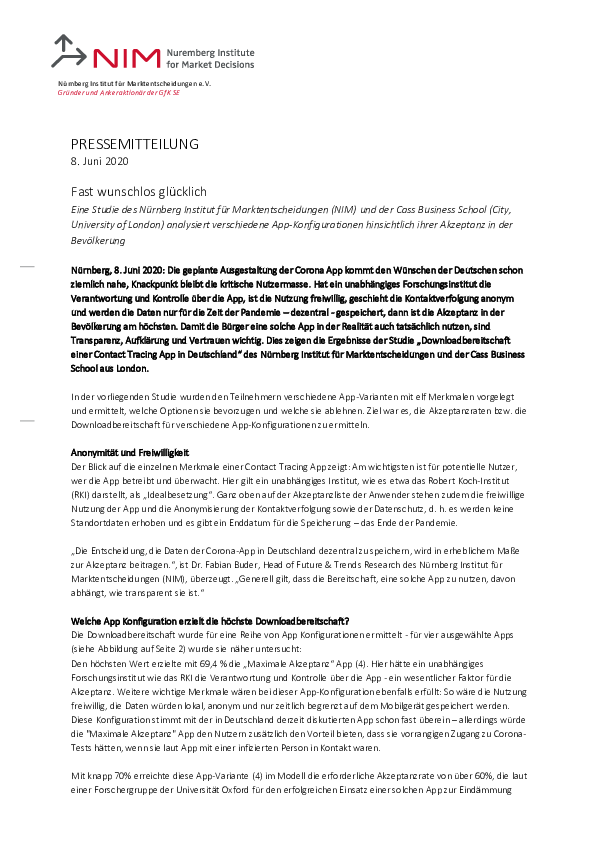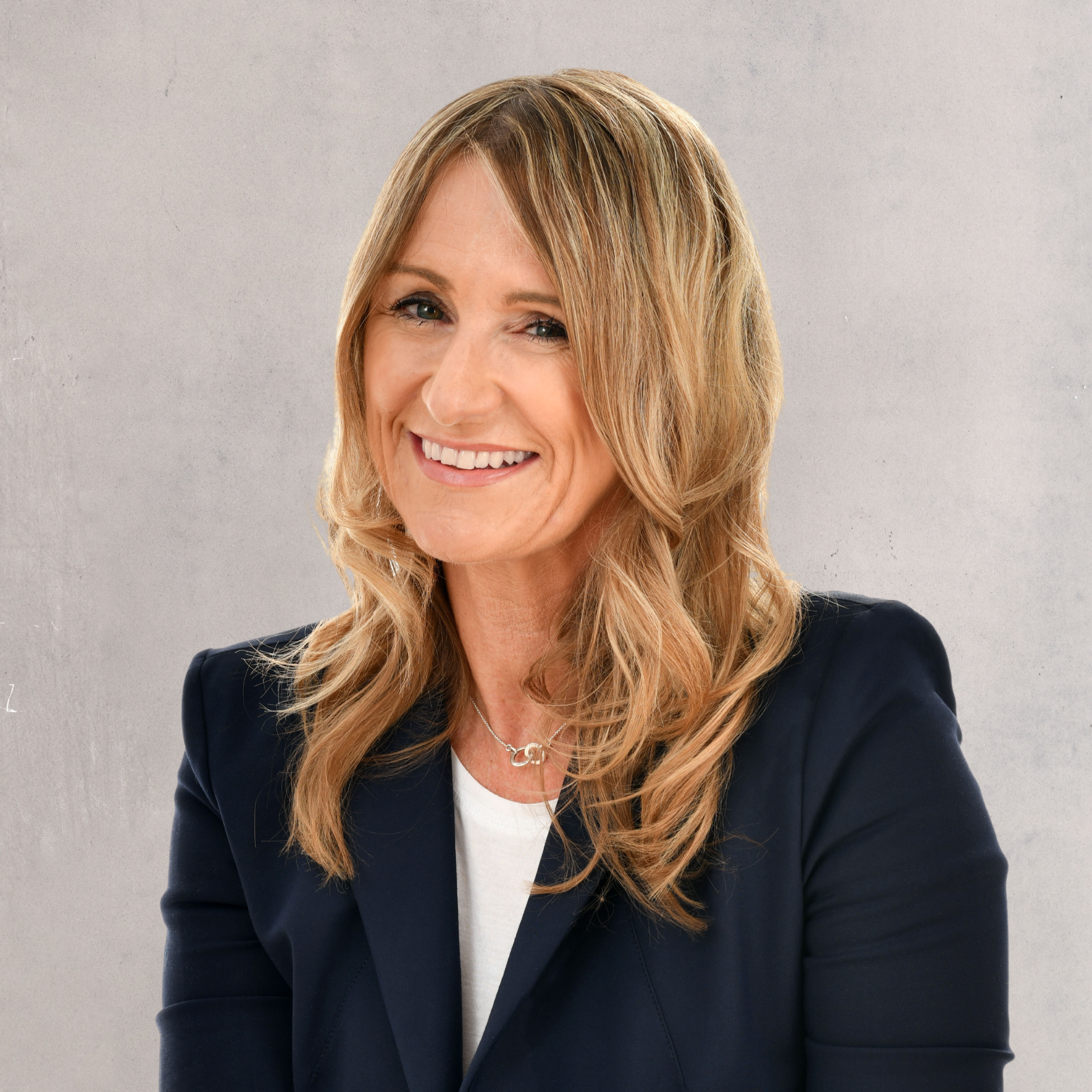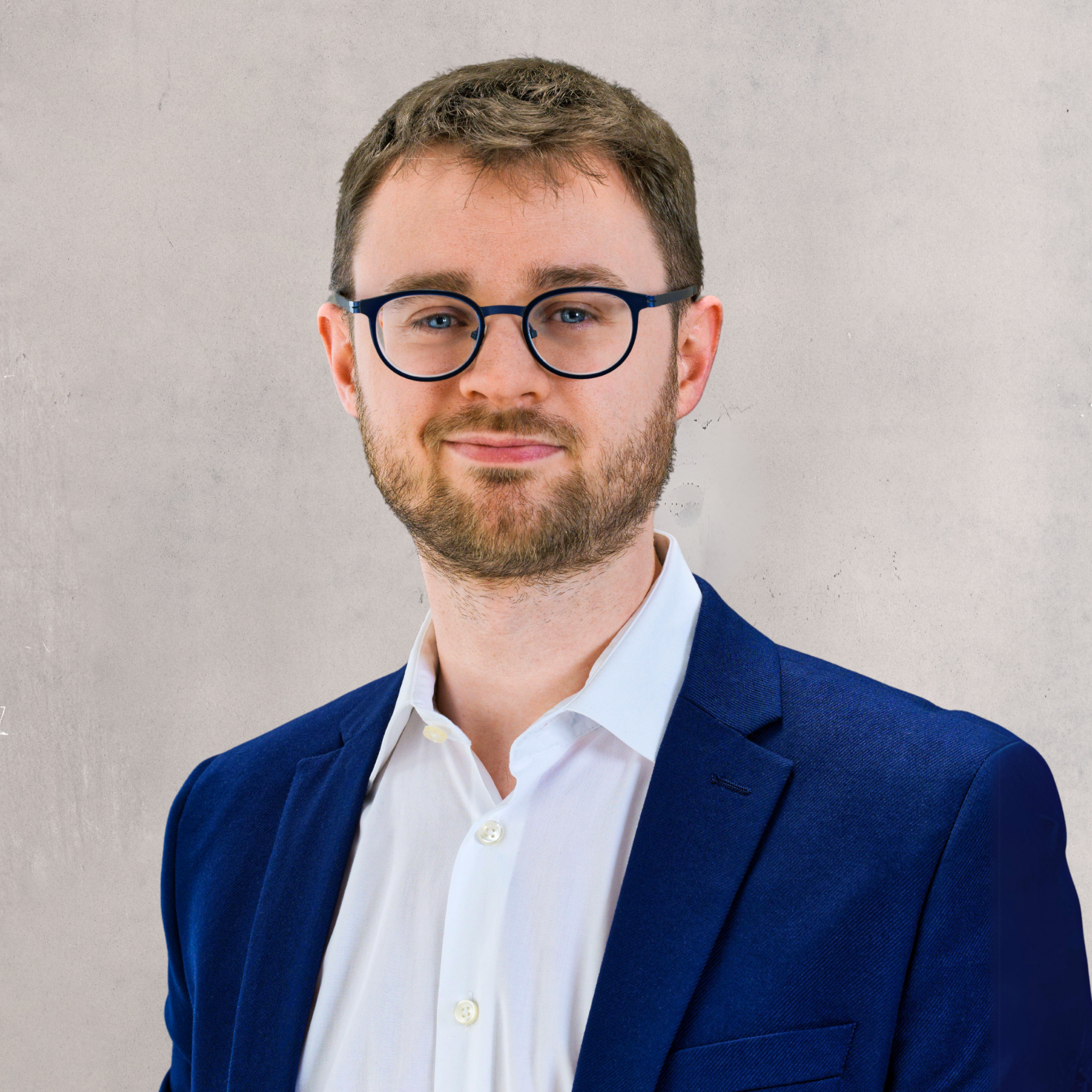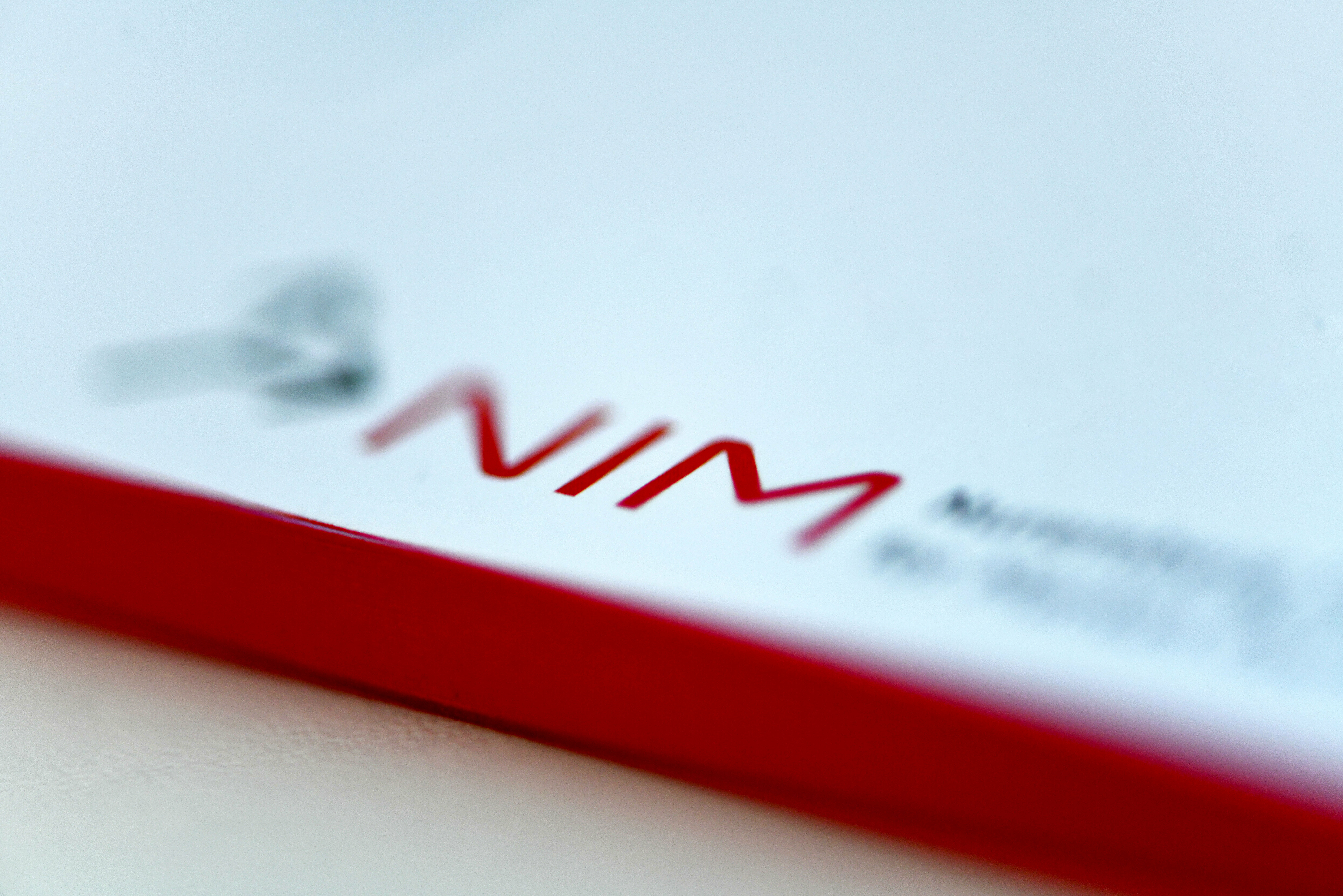The NIM Press Area
The NIM Communication Teams prepare the Institute's findings and study results for a broader public. They are also the central point of contact for journalists and editors.
Are you interested in finding out more about consumer behaviour, consumption and market decisions? Feel free to contact us. We will also be happy to put you in touch with NIM experts for background discussions and interviews.
Press
 Download
Download
Germans almost Happy
Nuremberg, June 8, 2020: The planned design of the German Corona App is already very close to the wishes of citizens, but the critical mass of users remains the crux of the matter. If an independent research institute has the ownership and oversight over the App, if its use is voluntary, if contact-tracing is anonymous and if the data is only stored "decentrally" for the duration of the pandemic, then acceptance among the population will be highest. Transparency, information and trust are important to ensure that citizens actually use such an app in reality. These are the results of the study "Adoption Rates for Contact-Tracing App Configurations in Germany" conducted by the Nuremberg Institute for Market Decisions in cooperation with researchers from City, University of London Cass Business School.
In this study, the participants were presented with different app variants described in terms of 11 attributes and multiple implementation options ranging from who will own and oversee the app to whether the app is a prerequisite to free movement, what type of data will be collected and for how long it will be stored. From the participants’ choices, preferences for the different options and importance for the different attributes can be derived. Based on these results, the adoption rates for various app configurations can be estimated.
Anonymity and voluntary use
A look at the features of a Contact-Tracing App shows: Who controls and oversees the app is the most important thing for potential users. An independent institute, such as the Robert Koch Institute (RKI), is considered the "ideal candidate". At the top of the users' acceptance list are also the voluntary use of the app and the anonymous data collection, as well as data protection, i.e., no location data is collected and there is an end date for storage – the end of the pandemic.
"In Germany, the decision to store the data of the Corona App decentrally will contribute significantly to acceptance," says Dr. Fabian Buder, Head of Future & Trends Research at the Nuremberg Institute for Market Decisions (NIM). "In general, the willingness to use such an app depends on its transparency."
Which app configuration achieves the highest adoption rates?
The willingness to download was determined for a number of different app configurations. For four selected apps, (see figure on page 2) it was analyzed in detail:
The "Maximum Acceptance" App (4) achieved the highest value of 69.4 %. In this case, an independent research institute such as the RKI would have ownership and oversight over the app – an essential factor for acceptance. This app configuration would also fulfill other important features: For example, its use would be voluntary, the data would be stored only on the user’s device, anonymously and only for a limited time. This configuration is almost identical to the app currently under discussion in Germany, but the "Maximum Acceptance" App would offer users the additional advantage of having priority access to corona tests if, according to the app, they were in contact with an infected person.
With almost 70%, this app (4) achieved the required acceptance rate of over 60%, which, according to a recent science article by researchers from the University of Oxford, would be necessary for the successful use of such an app to help contain the COVID-19 pandemic. It should be noted that the values determined are adoption rates under ideal conditions, as all respondents were fully informed about the features. In addition, in reality, other aspects, such as accessibility and usability, may influence the success. Another decisive factor will be whether the users trust the app and that their expectations regarding app control, data protection and voluntary use will be fulfilled.
But even if an app seems to fulfill (almost) all wishes, its adoption is still not certain: This is because 22% of those surveyed said that they would decide against downloading any of the app configurations presented.
For comparison, three further app configurations (1 - 3) were evaluated: All received lower adoption rates: a “Minimum Adoption” app concept (1) achieved 31.3% with central data storage and no particular user benefit. The value of the "Big Brother" app (2), a particularly data-hungry, government-controlled configuration, was only 41.5%. A positive factor here would be that users were given priority access to corona tests if they were in contact with an infected person. The "Initially Discussed” app (3) achieved just over 50% adoption rate. At the time of the survey in May 2020, this configuration was the state of public discussion (based on press reports and documentation provided on GitHub.com). In this case, a German IT company would have the oversight and control. Its use would be voluntary – as well as the feedback of test results. The data would be stored locally on the device for 14 days, and no location data would be collected.
Information creates transparency and acceptance
An accompanying survey revealed other factors associated with acceptance: For example, those respondents who followed tracing apps in the media more closely showed a higher acceptance of the simulated apps. This means that, besides practical factors like user-friendliness or technical implementation, public education seems to be a relevant factor for the success of the app.
Trust in the Government
Trust also seems to play a role: Because potential users who trust the information on COVID-19 provided by the government – at 58%, this is just over half – seem to have a significantly higher willingness to download the app. It will be the task of the government to build up this trust and extend it to the app if the planned app is to be widely used voluntarily.
Fear of COVID-19
In the survey, 43.8% stated that they were afraid of COVID-19. And it became clear that the acceptance of the two apps ("Initially Discussed App" (3) and "Maximum Acceptance" (4)) is related to the fear of COVID-19. The acceptance rates were the highest among those who reported the most fear.
About the study
In the study "Adoption Rates for Contact Tracing App Configurations in Germany" by the Nuremberg Institute for Market Decisions (NIM) in cooperation with researchers from City, University of London, Cass Business School, realistic app configurations were presented to a representative German sample (n = 1,472). The selectable app variants were described on the basis of 11 attributes, from who will oversee and control the app, to whether the app should be a prerequisite for freedom of movement, or what type of data will be collected and how long it will be stored. The design varied from one selection task to the next. From the respondents' selection behavior, it is possible to deduce which options are preferred and which are rejected. The results were used to determine acceptance/adoption rates (in % of the population) for different app configurations. The survey was conducted from 6 to 18 May 2020. The German study is based on a survey previously conducted in the UK by researchers from Cass Business School, London (Wiertz et al., 2020).
About the Nuremberg Institute for Market Decisions (NIM)
The Nuremberg Institute for Market Decisions is a non-profit organization for the research of consumer and market decisions. At the interface of science and practice, NIM examines how consumer and business decisions in markets are changing. The objective is to better understand consumers' decisions as well as those of marketing executives and to contribute to improving the quality of market decisions by sharing this knowledge. Its members include both companies and individuals interested in market decisions.
The Nuremberg Institute for Market Decisions is the founder and anchor shareholder of GfK SE.
For more information, visit www.nim.org.
Follow us on Twitter www. twitter.com/NIMinstitute
About Cass Business School
Cass Business School is the Faculty of Economics of the City, University of London. It is located in the heart of London's financial centre and specializes in three areas: Business Management, Finance and Actuarial Science and Insurance. It is one of the top 20 European business schools in the Financial Times Ranking and is Triple Crown, meaning that it is accredited by the three main accreditation organisations EQUIS, AACSB and AMBA. Further information can be found at www.cass.city.ac.uk.
Legally responsible for content according to the German press laws:
Nuremberg Institute for Market Decisions
Founder and Anchor Shareholder of GfK SE
Communication & Events
Sandra Lades
Steinstr. 21
90419 Nuremberg
Germany
+49 911 95151989
sandra.lades@nim.org




